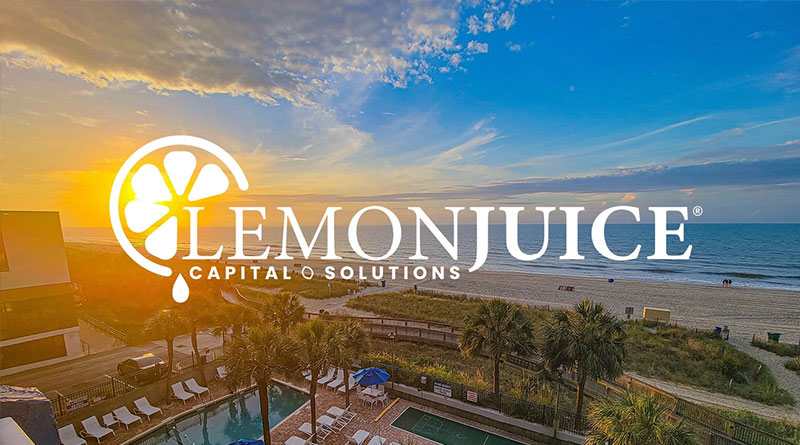ARDA-ROC Leads Industry in Timeshare Termination Legislation
Many timeshare resorts across the country face a critical challenge: timeshare plan expiration dates. These plans, which serve as the legal framework for timeshare resorts, sometimes include provisions for termination at specific future dates. When a timeshare plan expires, the impacted resort ceases to function as a timeshare, leaving owners without clear guidance on what comes next.
When a timeshare plan expires, the typical result is that an existing condominium plan remains in place. In this situation, the 52 owners of each unit become “tenants in common,” jointly owning what was once a timeshare unit. Unfortunately, there is often no provision for how these owners can use or sell the unit, rendering the use or disposition of these ex-timeshare units nearly impossible.
Furthermore, other resorts face a situation where it no longer makes financial sense to maintain the facility, but a lack of termination procedures in the resort’s plan leaves owners stuck without any option but to face steep assessments for interests that they might no longer want.
Timeshare plan expiration dates, and age-related maintenance issues, are particularly common in older resorts. Many of these plans initially include language terminating the timeshare plan 30-40 years into the future. Without a change in the law to address these procedural gaps in timeshare plans, owners face an impossible situation
ARDA-ROC’s advocacy efforts
As the group dedicated to protecting the interests of timeshare owners in the U.S., the American Resort Development Association- Resort Owners Coalition (ARDA-ROC) has been diligently working to address issues surrounding plan expiration dates by passing timeshare extension/ termination legislation in state legislatures across the United States. Notably, Florida, South Carolina, Rhode Island, and Virginia have already enacted legislation in this area, and a bill is currently pending in Massachusetts, with more legislation planned.
ARDA-ROC’s efforts in this area began when members identified the need for a solution to this problem. The ARDA-ROC team looked at states where there are a large number of aging resorts and often do not have sufficient procedures for termination in their timeshare plans, and began lobbying there. As a result, ARDA-ROC helped to successfully pass its termination/extension language in Florida in 2015, followed by Rhode Island in 2018, and South Carolina in 2019.
The team is also excited to share that Virginia passed its termination bill (SB 600) earlier this year and that it will be in effect by the publication of this article. This bill is particularly unique, as it allows for partial termination of a timeshare plan, creating the possibility for some of a resort’s timeshare units to be preserved, while repurposing the other portions of the property for other uses.
Key provisions of many of ARDA-ROC’s bills
Every state is different and the situations that timeshare owners find themselves in varies both from state to state and from resort to resort. ARDA-ROC works with its members to determine the best approach and language to create or amend timeshare termination/extension law on a state-by-state basis. This being said, ARDA-ROC’s bills addressing expiration-related challenges and enabling repurposings or extensions, typically contain several key proposals:
- 1. Voting Requirements: Establish new, more achievable voting requirements for owners who wish to terminate or extend their timeshare plans.
- 2. Retroactive Application: Apply the legislation retroactively to existing association documents.
- 3. HOA Representation: Allow the Homeowners’ Association (HOA) to represent resort owners in post-termination activities and property sales.
- 4. Liability Protection: Limit the period of liability for acts associated with terminating or extending a timeshare plan, safeguarding both the HOA and board members.
These provisions empower timeshare owners to take control of their resort’s future and ensure the necessary procedures are in place for whatever direction they choose to go in.
Real Impact of ARDA-ROC advocacy
Lemonjuice Solutions, an ARDA member that assists associations in wind-down and repurposing efforts, has a number of examples of successful ex-timeshare property repurposings.
Each of the below projects was unique and required a customized solution, with key factors like statutory and regulatory regimes, real estate values and markets, highest and best-use considerations, and how to maximize the sales price to ensure the highest amount of money for owner distribution, playing crucial roles in the approach.. In all of the below scenarios, owners were given options and outcomes that were vastly better than being tethered to a resort in rapid economic and operational decline.
In Lemonjuice Soultions’ experience, the process of repurposing properties has been more efficient in states that have adopted ARDA-ROC supported termination legislation, like South Carolina and Florida, resulting in better outcomes for those owners.
The Yachtsman Resort
The Yachtsman Resort in Myrtle Beach, SC, has two 11-story oceanfront towers and 80 units. It was built in the 1970s out of precast concrete panels. Significant structural deficiencies were discovered with seven-figure repair costs. Active timeshare ownership had diminished to less than 35 percent of paying owners. The board speculated that imposing a special assessment would have put the remaining owners in a difficult situation and most would be unable to afford it. Unique title encumbrances prevented a simple vote for termination and sale. Lemonjuice loaned the funds to the Association to complete the repairs, utilized the federal court system to clear the title, and sold the property. Owners received an average of $3,200 per timeshare week with options to use their proceeds to acquire other timeshare or vacation ownership products.
Bay Club Resort
Bay Club Resort is a five-story, 60-unit bayfront timeshare in Ocean City, Maryland, developed in 1978. It is one of Lemonjuice’s partial reimaginations. Ocean City is a highly seasonal market with about 10 weeks of peak usage, and over the years, ownership of the off-season weeks deteriorated. An engineering study in 2022 determined the building was structurally sound, though it indicated that approximately $3 million in doors, windows, and pool renovations were urgently needed.
Lemonjuice assisted the Association in securing a construction line of credit and worked with the Board of Directors to amend the governing documents and terminate the timeshare plan for 24 of the units. Sales of the 24 condominium-hotel units, called the “Bay Club Residences,” began in March 2024. Currently, 11 have sold. Sales proceeds are projected to satisfy the construction loan, fund the reserves, and modernize the property and financially stabilize it. In the process, timeshare owners who wished to remain were consolidated into the remaining units with improved accommodations. Those wishing to end their timeshare commitment will receive between $4,000 and $18,000 for their intervals.
Egrets Pointe
Egrets Pointe Townhouses in Edisto Island, South Carolina, was a phase of 24 timeshare units within a mixed-use community developed by one of the industry’s largest brands. The phase suffered functional obsolescence, active ownership had fallen below 60%, and the Association had no reserves. Owners faced special assessments, and many had fallen victim to relief scams. Lemonjuice funded and managed a range of crucial improvements to enhance the property’s structural integrity and livability. Improvements included replacing aging decks, installing a state-of-the-art vapor barrier in the crawl spaces, doing extensive roof repairs, redesigning interior spaces, and adding a bedroom to each unit.
The 24 townhomes were sold as residences, making the phase an attractive component of the community, much to the benefit and delight of its neighbors. Owners received more than $4,500 for their weeks.
Borderlinks
Borderlinks is a 54-townhome community on a golf course in Ocean Pines, Maryland. 34 three-story duplex homes, built in the early 1970s, were sold as timeshares in the early 1980s. The structures were built on pilings, and over the years, the pilings deteriorated and floor systems began to fail.
The Board employed several engineers and contractors to try to remedy the problems but was unwilling to assess the owners to make the needed repairs. Some units had to be taken off-line as they were unsafe to occupy. The resort was censured then de-listed by its exchange provider, and the pace of decline accelerated.
Maryland does not currently have the benefit of legislation to simplify timeshare restructuring or non-judicial foreclosure. The timeshare termination required all owners in every unit to sign a deed. To make things worse, each building had a separate (and inconsistent) timeshare declaration.
Many owners were delinquent and out of contact. Some deeds were even in the names of household pets. Lemonjuice acquired inventory and receivables from the associations to provide liquidity for repairs and operations and, over three years, accumulated the votes necessary to get all the homes sold as whole ownership.
Lemonjuice also financed and managed the arduous legal process that enabled the sale of the property. In the end, timeshare owners received as much as $6,800 for their previously unsellable and often unusable timeshares.
ARDA-ROC remains committed to fighting for owners on this issue as the team continues to identify opportunities for more termination/extension legislation in the future.
Originally Published in TimeSharing Today Issue 197



